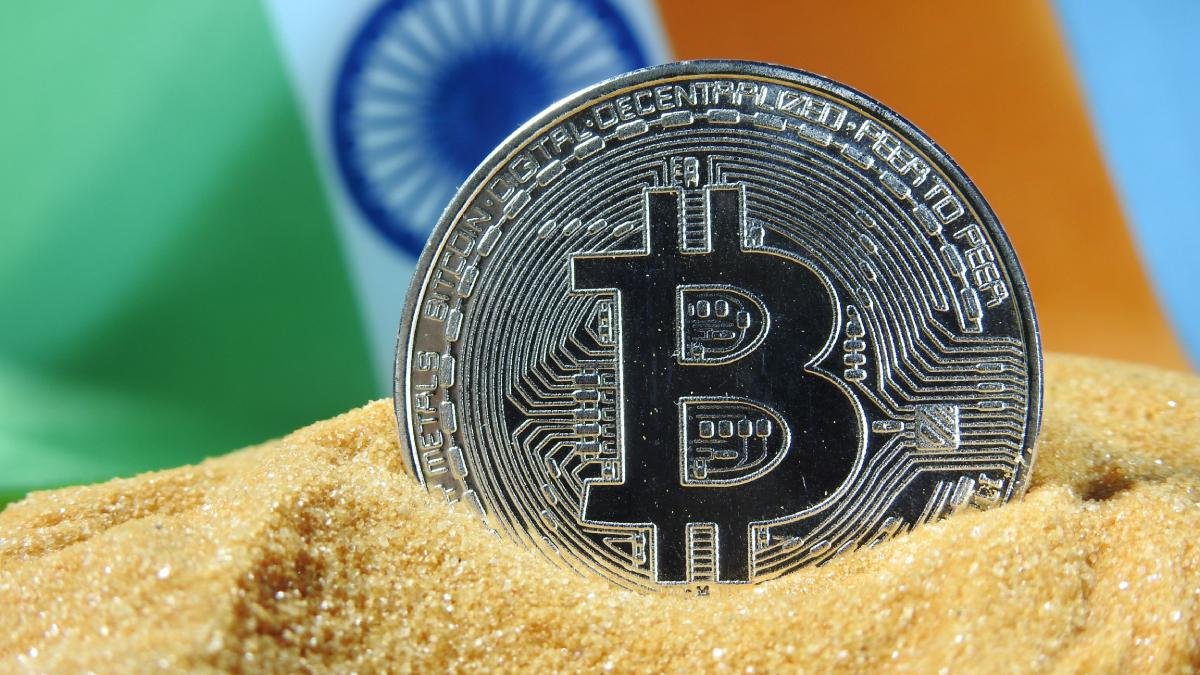
US President Donald Trump announced the creation of separate reserves for Bitcoin and other cryptocurrencies in the US last month, in a boost for the digital assets sector. The decision prompted Sweden and South Korea to open dialogue around considering Bitcoin as a potential reserved asset. There’s currently no word on whether the Government of India is planning to establish a strategic crypto reserve. Gadgets 360 discussed the possibility of India’s Bitcoin reserve with Polygon and Avail co-founders Sandeep Nailwal and Anurag Arjun.
Pros and Cons of a Strategic Bitcoin Reserve
Polygon COO Nailwal said that US President Donald Trump has kickstarted a race to acquire Bitcoin and other altcoins for long-term benefits to the US economy. He said that India, which is one of the fastest-growing economies in the world, may regret its conservative approach on crypto if it fails to catch up with other big economies in a timely manner.
“The world is long past the days when Bitcoin was considered an experiment or simply a haven for criminals. Some of the world’s largest asset managers, sovereign wealth funds, and national governments have invested large amounts of money in BTC and the broader altcoin market, indicating the rising adoption of the asset class,” Nailwal told Gadgets 360.
Abu Dhabi’s investment company, Mubadala and Norway’s Norges Bank Investment Management (NBIM) are prominent financial firms that have begun to deal with Bitcoin via investments in pro-crypto firms like MicroStrategy, Tesla, and BlackRock’s Bitcoin ETFs. In India, Mumbai-based IT training firm Jetking has acquired Bitcoin tokens worth Rs. 10 crore.
The January 2025 edition of the World Bank’s Global Economic Prospects (GEP) report projected India’s economy to grow at a steady rate of 6.7 percent in both FY26 and FY27, significantly outpacing global and regional peers. The IMF also estimates India’s growth to remain robust at 6.5 percent for 2025 and 2026. “India can seriously consider creating a crypto stockpile to diversify its reserves and elevate the integration of blockchain with its economic ecosystem,” Nailwal said.
However, the Polygon COO also cautioned that the authorities need to strengthen tech infrastructure, cybersecurity, and introduce a regulatory framework for cryptocurrencies before establishing a crypto reserve. Existing gaps in crypto awareness, legal provisions, and enforcement of criminal punishments could pose risks to India’s financial stability if crypto is considered as a reserved asset.
Possible Avenues to Set Up Crypto Reserves
India can allocate one to two percent of its foreign exchange reserves to crypto assets as a pragmatic starting point, Avail Co-Founder Anurag Arjun told Gadgets 360. Avail is a blockchain firm that supports the design of Web3 applications. Arjun also co-founded Polygon alongside Nailwal in 2017 but exited the firm in 2023.
“India needs to see the creation of a crypto reserve as more than just about jumping on a trend. It’s more about positioning India strategically in a rapidly evolving global financial landscape,” Arjun said.
“An small allocation of India’s foreign exchange reserves to crypto makes for a modest exposure that limits risk while enabling India to experiment strategically, mirroring institutions like BlackRock (managing $50 billion in Bitcoin ETFs) and corporations like MicroStrategy, whose stock surged 1,500 percent after adopting Bitcoin as a treasury reserve. In the short term, such a move would position India as a forward-thinking economy, attracting blockchain innovation and global capital,” he added.
Avail’s co-founder also highlighted that Bitcoin’s fixed supply of 21 million tokens offers protection against inflationary pressures in traditional currencies, serving as a hedge against monetary instability in an increasingly uncertain world.
“With 17 percent of the global population and a tech-savvy workforce, India has the demographic and intellectual capital to lead rather than follow. Digital assets offer a hedge against dollar hegemony, a tool for financial inclusion, and a bridge to the digital economy—critical for sustaining growth in a digitising world. A late entry into the race would mean acquiring assets at significantly higher prices, placing India at a strategic disadvantage,” he added.
India is also at liberty to keenly analyse US’ step of putting seized crypto funds into its crypto reserves. In February this year, India’s Enforcement Directorate (ED) seized its biggest crypto fund worth Rs. 1,646 crore investigating a money laundering case. Other similar probes have also roped in hefty crypto funds that have been placed under the custodies of Binance, ZepPay, WazirX, and CoinDCX.
Financial Analyst Suggests Caution
Nimen Shah, a senior chartered accountant and international tax advisor from Mumbai, said India’s financial position is on solid ground, which eliminates any urgency for it to venture into creating crypto reserves.
“Cryptocurrencies are volatile and still largely unregulated. They enable private financial transactions without the involvement of any central bank or broker, making them susceptible to misuse by criminals. Because crypto lets individuals process financial transactions without an intermediary, it threatens the autonomy and control of central banks on a global level,” Shah told Gadgets 360.
Over the last few years, the Reserve Bank of India (RBI) lifted its ban on crypto, while the government introduced a 30 percent tax on cryptocurrency incomes, which has been criticised by many crypto investors.
In 2024, former RBI governor Shaktikanta Das called crypto risky and highly speculative, addressing the World Economic Forum (WEF) in Davos. Finance Minister Nirmala Sitharaman also stated last year that crypto cannot be viewed as a legitimate currency in India.
“India need not rush into a creating a crypto reserve. Given the apprehensions of the RBI and other stakeholders, it would be a very long leap to go from zero regulations to crypto reserves,” Shah said, while dismissing the idea of crypto becoming an alternative to the US dollar for India.
He said that crypto activities are more intensive in the US than in India. “Crypto is not big enough either as an industry or as an acceptable enough asset class to impact our monetary policy or our financial system. We are a long way away from there,” Shah added.
As of Tuesday, the valuation of the crypto sector stood at $2.7 trillion (roughly Rs. 2,31,56.903 crore) with over 13 million tokens in circulation. Bitcoin, the most expensive crypto token, is presently trading at $85,600 (roughly Rs. 73.4 lakh).



